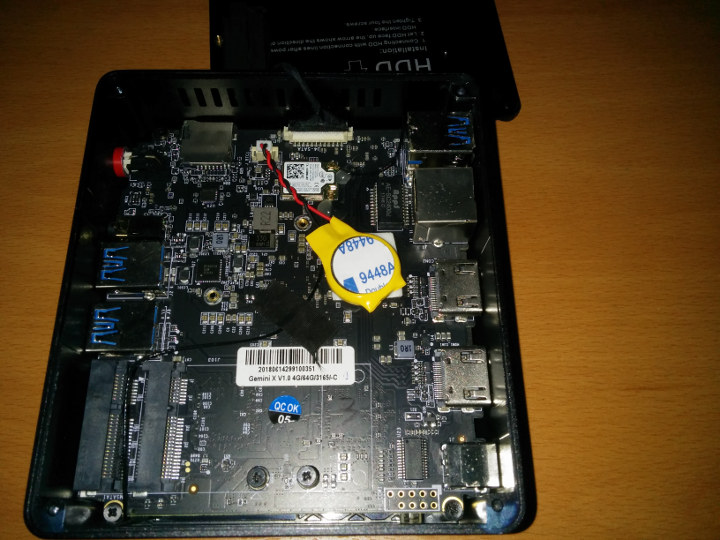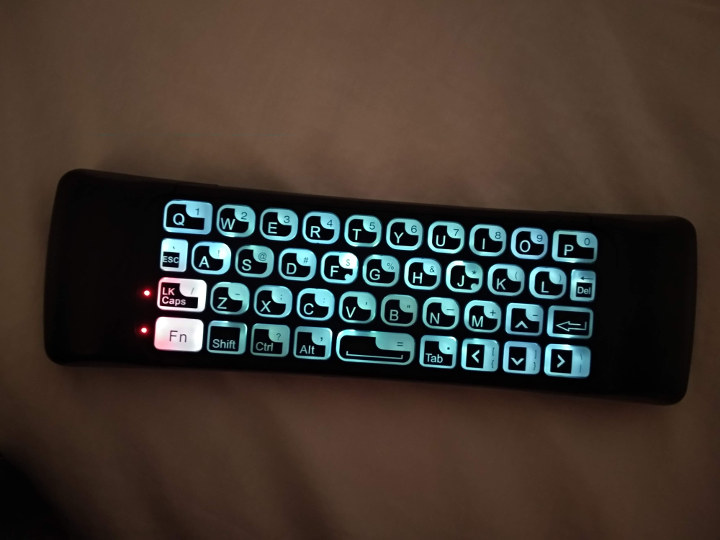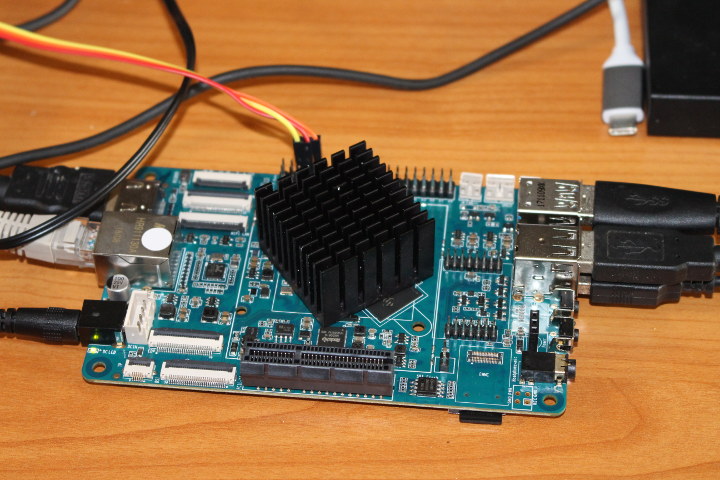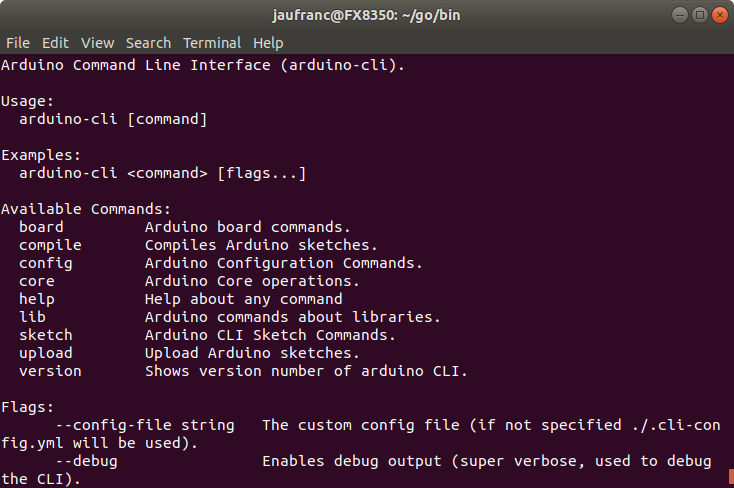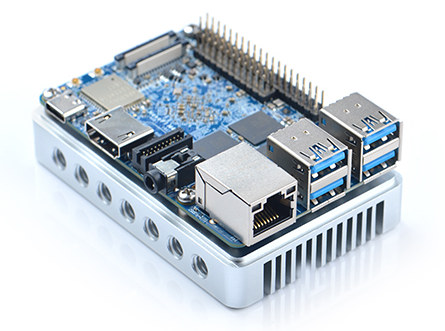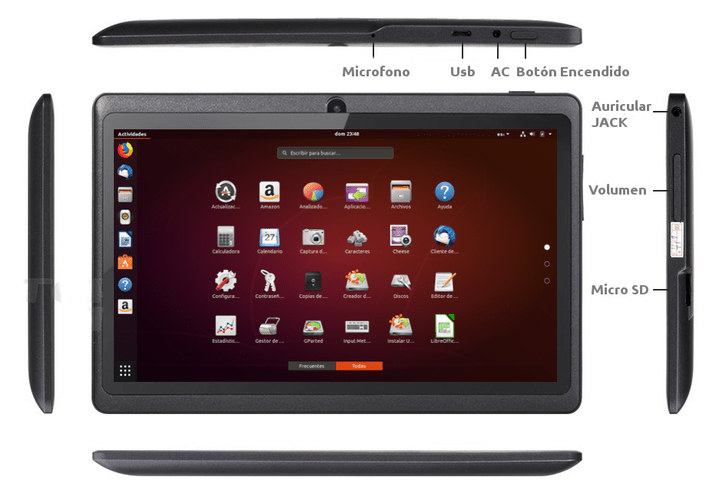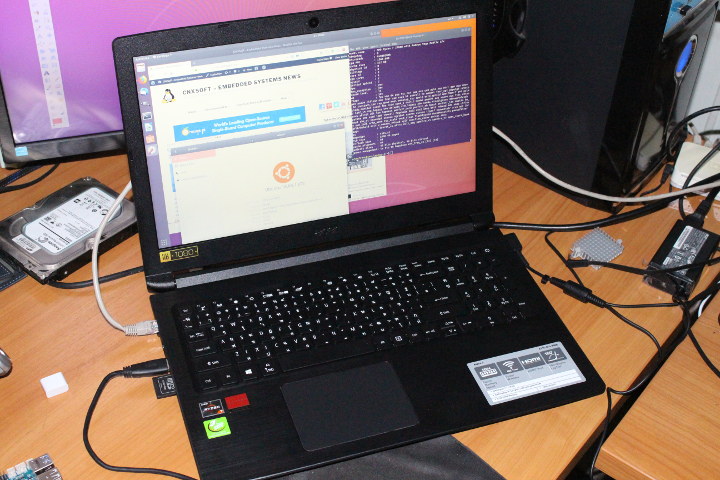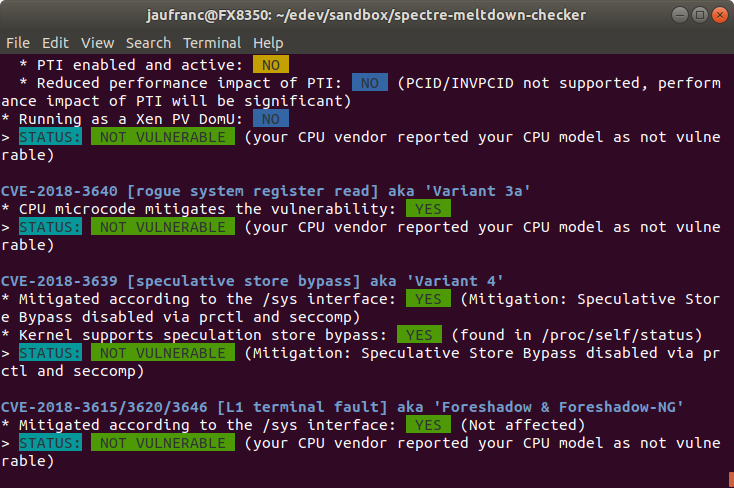The Beelink X45 mini PC is now available, and Lightinthebox.com have provided a unit for review. It is very similar in style to Intel’s latest NUC Windows mini PC, the NUC7CJYSAL reviewed earlier. However it contains an Intel Celeron Processor J4105 SoC which is a quad core processor bursting up to 2.50 GHz together with the Intel UHD Graphics 600 processor that is capable of 4K support at 60Hz. It is physically small consisting of an approximately 4.5″ by 4” case about 1¾” tall with a front panel that includes the power button and a couple of USB ports and a headphone jack with the rest of the ports including two HDMI (2.0) ones at the rear: The specifications include: A key point to note is the Beelink X45 comes with 64GB eMMC with pre-installed Windows 10 Home together with 4GB DDR4 RAM (soldered and is non-expandable) with space and […]
MINIX NEO W2 PC Remote Control Review in Windows 10 and Ubuntu 18.04
MINIX NEO W2 is sold as a Windows 10 remote control with one side acting as an actual remote with shortcuts to useful Windows functions and programs, another side as a keyboard, as well as a motion sensors to use it as an air mouse. I received it with MINIX NEO J50C-4 Windows 10 Pro mini PC, so I tested it today both with Windows 10, and Ubuntu 18.04. Batteries and Backlight I’ve already looked at the package and remote hardware in the NEO post linked above, so let’s get to it by first installing two AAA battery on either side of the keyboard side. A cool feature you’ll immediately noticed is that both sides of the remote control are actually backlight, with Fn and CapsLock key also changing color to red when they are enabled. The backlight is automatically turn off after 4 seconds, but as you can see […]
RockPro64 RK3399 Board Linux Review with Ubuntu 18.04 + LXDE
Let’s do one more RK3399 Linux review using Pine64 RockPro64 development board. After shortly checking out the hardware, I’ll test Ubuntu 18.04 “Bionic” LXDE on the board, test 3D graphics acceleration, video playback, USB storage and network performance among other things on the board. RockPro64 Board Unboxing The board came in a cardboard package, and the sticker made it clear I had received the 2GB LPDDR4 version. Even after FriendlyELEC NanoPi M4 announcement, Rockchip ROCKPro64 is still the cheapest RK3399 development board around, so it should come as no surprise that the board does not come with any accessories by default. Another way to keep the price low was not to include any built-in storage apart from SPI flash, so instead most people will either boot from micro SD card or an eMMC flash module both of which need to be purchase separately. Another cost-saving is the lack of built-in […]
Arduino Releases Command Line Interface (CLI) Alpha Preview
So far, AFAIK the only official ways to program Arduino boards were through the Arduino IDE program, or the cloud-based Arduino Create which works in your web browser and does not require any installation on your computer. While graphical interfaces are nice and user-friendly, many of us are more productive while working using the command line, especially if commands can be scripted. So Arduino decided to work on a command line interface (CLI) for professional users, and have just announced a preview release. arduino-cli works in Windows, Linux, and Mac OS, and allows you install libraries, boards, and cores (e.g. esp32 Arduino core), compile the code, and upload the binary to the target board. If you want to get started quickly, you can download the binary “alpha” releases in the announcement board, but instead I opted to build the client myself as explained on Github. Everything below is done in […]
NanoPi M4 Raspberry Pi Inspired RK3399 Board Launched for $65 and Up
As expected, FriendlyELEC has now launched NanoPi M4 board, a lower cost version of NanoPC-T4 Rockchip RK3399 SBC, and mostly following Raspberry Pi form factor. How much you may ask? That would be $65 plus shipping for the 2GBRAM version, and $95 for the 4GB RAM version, which means it sells in the same ballpark as RockPro64 board. NanoPi M4 board specifications: SoC – Rockchip RK3399 big.LITTLE hexa-core processor with 2x Arm Cortex-A72 @ up to 2.0GHz, 4x Cortex-A53 @ up to 1.5GHz, a Mali-T864 GPU with support OpenGL ES1.1/2.0/3.0/3.1, OpenVG1.1, OpenCL, DX11, and AFBC, and a VPU with 4K VP9 and 4K 10-bit H265/H264 6decoding System Memory – Dual-channel 4GB LPDDR3-1866, or dual-channel 2GB DDR3-1866 Storage – eMMC module socket, micro SD card slot Video Output HDMI 2.0a up to 4K @ 60 Hz with HDCP 1.4/2.2 support 4-Lane MIPI-DSI connector Audio – 3.5mm headphone jack, HDMI digital audio […]
TableX Arm Linux Tablet Runs Armbian Ubuntu, To Launch for 89 Euros
If you want an Arm Linux laptop, you have already some choices with products such as Pine64 Pinebook, or Olimex TERES-I open source hardware laptop, but if instead you’d rather do without keyboard, and get an Arm Linux tablet, choices are much more limited, if any at all. Back in 2012, Allwinner A10 based PengPod 700 & 1000 tablets were available for the company has since folded, and this year, RasPad case launched to allow you to build your own thick tablet with a Raspberry Pi 3 (B+). However, if you want to normal looking tablet, your best option right now is to get an Android tablet and mess around to install Linux on it. That’s not for everyone, and the good news is that what looks like a proper – albeit low-end – Arm Linux tablet is coming to market soon with TableX. TableX preliminary hardware specifications: SoC – […]
Acer Aspire 3 A315-41G (AMD Ryzen 7 2700U) Laptop – Installing Ubuntu 18.04 and “Hidden” M.2 SSD Socket
Everyday I’m using a tower PC running Ubuntu 18.04 to take care of this blog, but when I travel it’s obviously not so convenient, so a few years ago I bought an Acer Aspire E5-421G laptop powered by an AMD A4-6210 processor with 4GB RAM, 512GB HDD, and a 14″ display. I installed Ubuntu on the laptop and it works, but with 4GB RAM, it’s not always usable while multitasking. For example I can run Thunderbird and Firefox, but if I ever make a Skype call for example, the system becomes unusable, and I have to close one of the programs. Tasks like video editing are also quite slow on the machine. So since I’m going to travel in a few weeks, I decided I needed a new laptop. My requirements were 8GB RAM, SSD and HDD support, a 15″ display, the ability to run Ubuntu 18.04, and possibly a […]
Check for Spectre, Meltdown, and L1 Terminal Fault Vulnerabilities with Spectre-meltdown-checker Script
Yesterday, we wrote a little bit about the new speculative execution vulnerability known as L1 Terminal Fault (L1TF) or Foreshadow, and a reader – MHSadri – pointed to an interesting script that checks for all three speculative execution vulnerabilities, and runs in Linux and BSD (FreeBSD, NetBSD, DragonFlyBSD) across multiple architectures: Intel x32, AMD64, Arm and ARM64. Other architectures will also work, but mitigation reporting may not be correct. So I tried it on my own machine, a computer running Ubuntu 18.04 on an AMD FX8350 processor. Installation is easy:
The developer recommends to check the script manually first, just for security sake. You can have two way to run it: either directly inside your OS, or via docker which may be a better idea since it would not be able to mess with your system especially I had to run it with sudo to avoid permission issues. Here’s […]


